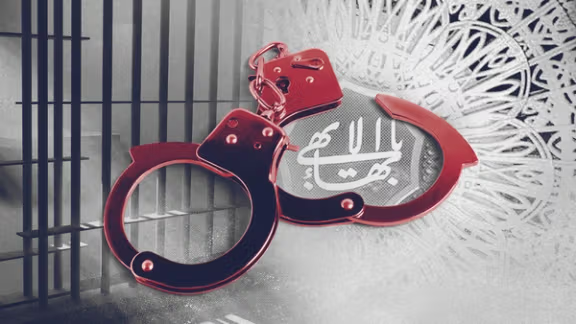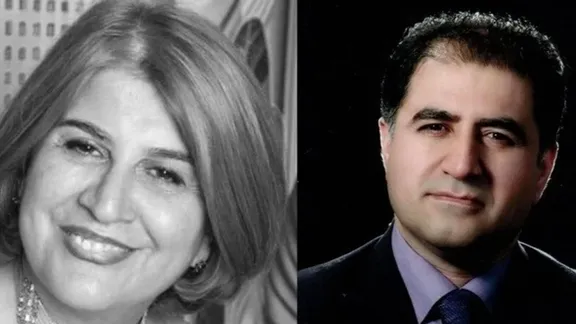Canadian woman pleads for release of Baha'i kin detained in Iran

A Canadian woman is speaking out after her aunt and uncle were arbitrarily arrested in Iran with no charges, simply, she says, because of their Baha'i faith.

A Canadian woman is speaking out after her aunt and uncle were arbitrarily arrested in Iran with no charges, simply, she says, because of their Baha'i faith.
Baha'is are a religious minority in Iran persecuted by the ruling Islamic theocracy.
“My beloved aunt was arrested while pleading for the release of her husband, who himself had been taken from his workplace just weeks earlier. They raided his office, seized files, and vanished him without a word,” said Saghar Shahidi-Birjandian in an interview with Iran International.
“When she tried to find him, they came for her too. Now both are imprisoned without charges, denied lawyers, denied bail, and even denied the right to mourn after a death in the family,” she added.
Shahidi-Birjandian’s uncle, Kourosh Ziari, was arrested on October 4 at his workplace in Gonbad-e Kavus in northeastern Iran after authorities raided his office and seized his documents.
Her aunt, Sholeh Shahidi, was detained two weeks later while advocating for her husband’s release. Both were held at undisclosed locations for weeks before being transferred to the provincial capital of Gorgan, where they remain detained without legal counsel or formal charges.

“Her disabled son, who depends on her for everything, wasn’t even allowed to see her. The cruelty feels endless, and yet all they’ve ever done is live peacefully,” said Shahidi-Birjandian.
She has launched a Change.org petition calling for the couple’s immediate and unconditional release, protection from mistreatment in detention, and the reunion of their disabled son with his parents.
Growing crackdown
Her story is not unique.
Since the 1979 Islamic Revolution that brought the clerical establishment to power in Iran, Baha'is have been systemically persecuted simply for their faith because the Islamic Republic does not recognize the Baha'i faith as an official religion and views it as heretical to Islam.
Authorities routinely accuse Baha'is of being spies for Israel since the Baháʼí World Centre is located in Haifa, Israel, though the site predates the creation of Israel.
Baha'is in Iran have faced arbitrary arrests, executions, confiscation of property, denial of higher education, job bans and harassment, a state-sanctioned effort to erase their community from public life despite their peaceful and apolitical beliefs.
Since the 12-day war between Iran and Israel, the situation for Baha'i in Iran has deteriorated sharply, Farhad Sabetan, spokesperson for the Baha’i International Community told Iran International. There has been a coordinated wave of raids across at least six provinces including Sistan and Baluchistan, Semnan, Mazandaran, Fars, Isfahan and Tehran, says Sabetan.
In October alone, security agents raided at least twenty-two homes and businesses, seizing belongings, sealing shops, and detaining Baha'is as part of a growing campaign of intimidation amid Iran’s worsening economic and political crisis.
“Every single instance of what I just described is solely because they’re Baha'is. Authorities often come without a warrant, give no explanation, and later invent charges like acting against national security, without a shred of evidence,” Sabetan said.
“It is pressure upon pressure. They can’t have a job, their stores are sealed, they can’t go to university, and they have no access to basic rights simply because they’re Baháʼís,” he added.
Human rights advocates say the renewed crackdown on Baha'is reflects a broader pattern of repression inside Iran, as the authorities tighten their grip amid economic decline and growing unrest.
For families like Shahidi-Birjandian’s, the cost of practicing their faith remains high.